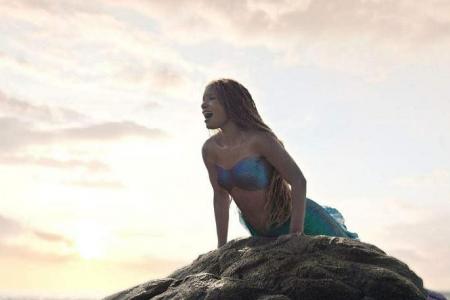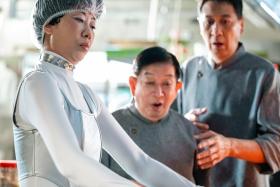Ariel taught The Little Mermaid star Halle Bailey to lose her fear of speaking out
Few unreleased movies have been beset by this much online vitriol.
From comments about Flounder the fish sidekick looking too creepily realistic to accusations that scenes are plagued by poor lighting, examples of boos for the live-action remake of the animated classic The Little Mermaid (1989) – which opens in Singapore cinemas on Thursday – have been plentiful.
The fiercest storm has raged over Disney’s decision to cast a black woman, Halle Bailey, in the role of the mermaid princess Ariel.
At an online press conference attended by The Straits Times two weeks ago, a confident and upbeat Bailey, in an indirect way, addressed the accusations of “blackwashing” that the studio received.
In her answer to the host’s question about how closely the American singer-actress identified with her character of the headstrong mermaid, Bailey says the project has taken up “five years of my life”.
“From 18 to now being 23. Those are very intense, transformative years when you’re developing as a young woman. But I feel the themes of the film – following through with your passions, and speaking up for yourself, even though it may be scary – those things I really try to adopt and give to Halle now.”
Referring to Ariel, Bailey continues: “She’s taught me so much, for sure.”
English actor Jonah Hauer-King plays Prince Eric, the man who captures Ariel’s heart after she sees him acting to save his men on board a storm-tossed ship.
Asked about his favourite new elements in The Little Mermaid, he mentions one extra dimension – the friendship that can exist between a man and woman – that the musical fantasy film adds to the Ariel-Eric relationship.
“Disney romances are filled with instinctive attraction – we all want to see that,” says Hauer-King, 27.
“Ariel and Eric are kindred spirits. They feel restless, behind the four walls of their respective castles. They look outwards, not in,” he adds. The film shows them sharing their feelings about being forced to fill pre-ordained roles.
“They were teaching each other. They are excited and fascinated by each other’s worlds. That’s a good message for what it means to be in love and why it lasts,” he says.
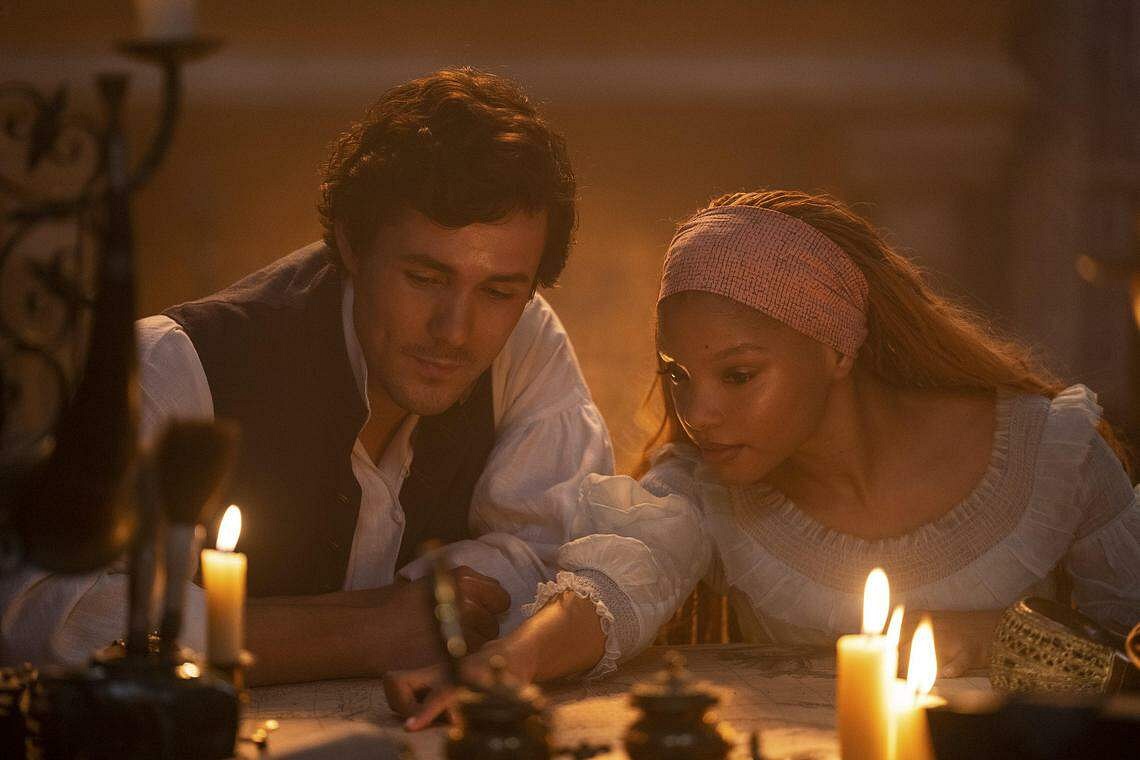
The plot of the updated version follows that of the original animation. Ariel, the daughter of King Triton (Javier Bardem), is fascinated by human culture, much to his dismay.
She meets and falls in love with the sailor Prince Eric and saves him from going down with his ship.
She makes a pact with the sea-witch Ursula (Melissa McCarthy) – the spellcaster will give Ariel legs, but in return, she will lose her voice.
Also, if Ariel and Eric fail to exchange a “true love’s kiss” by the end of her third day on land, Ariel will return to the sea, once more a mermaid, but bonded to Ursula forever.
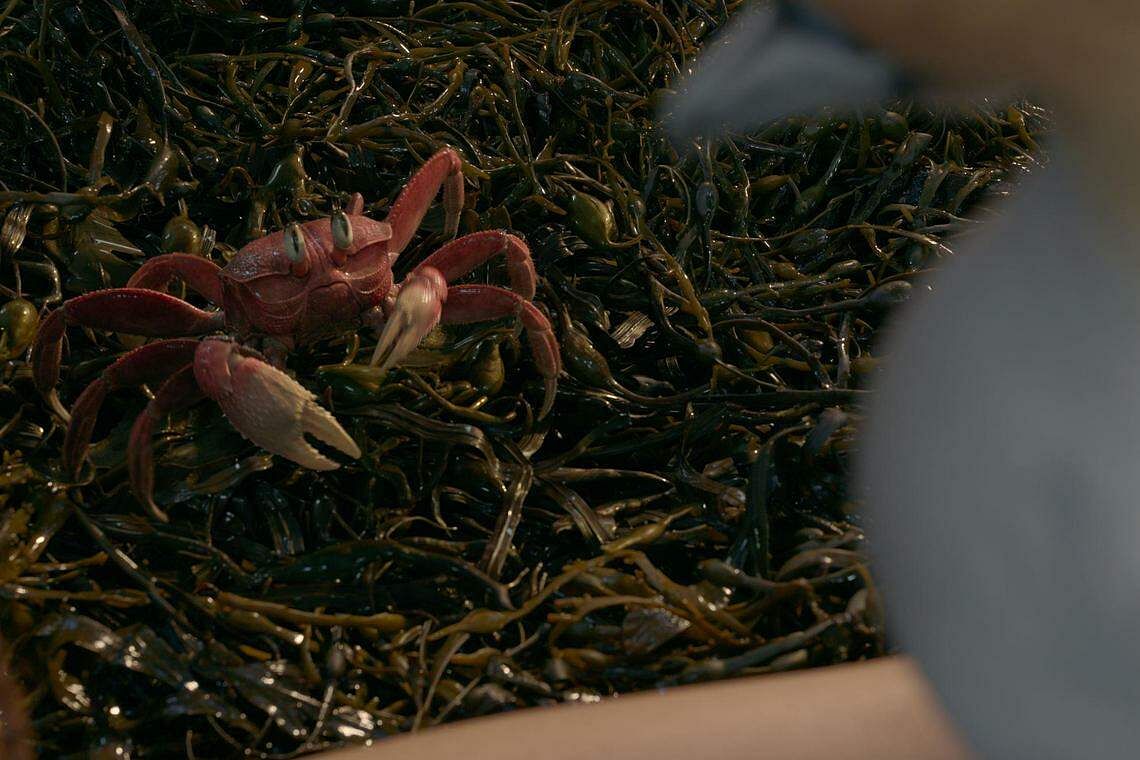
Helping Ariel in her quest are various creatures, including Sebastian (voiced by Daveed Diggs), Triton’s crab servant; Scuttle (Awkwafina), a seabird who dishes out incorrect information; and Flounder (Jacob Tremblay), a fish who is Ariel’s best friend.
Another more basic criticism was handled by the film’s director Rob Marshall and producer John DeLuca, who were speaking at another panel.
As if answering the question of “Why remake the beloved 1989 animation classic if you are not adding anything new?”, both talked about the way the new movie differed from the original, which itself was based on a Hans Christian Andersen fairy tale.
The Oscar-nominated American film-maker Marshall (Chicago, 2002) says Disney “wanted us to reinvent and reimagine – they’re not looking for a frame-by-frame remake”.
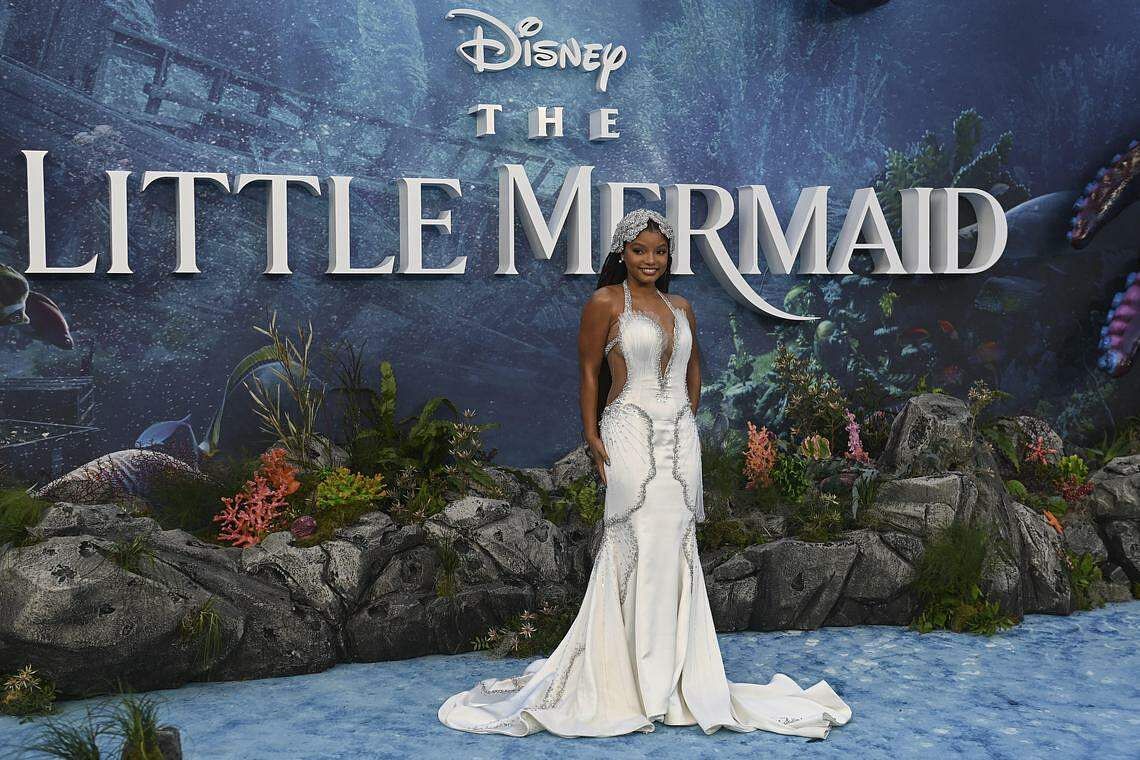
One change? Giving Ariel more music. While the ballad Part Of Your World is much loved, few realise that it was Ariel’s only song.
“It’s surprising when you think about it,” says Marshall, 62. So, the team asked the original film’s composer Alan Menken to write a new tune for Ariel.

But there was a problem – after Ariel begins walking on land, she loses her voice because of her pact with Ursula.
“But we realised that in film, you can hear a person’s internal thoughts through music. That was the key to finding this new piece for her,” says Marshall.
The new song is For The First Time, with lyrics by American actor-singer-composer Lin-Manuel Miranda. He is a co-producer on The Little Mermaid and is best known for creating the Broadway musical Hamilton (2015) and the soundtracks for the Disney animated films Moana (2016) and Encanto (2021).
The ballad lets Ariel describe the rush of emotions that sweeps over her during her first walk around the human town.
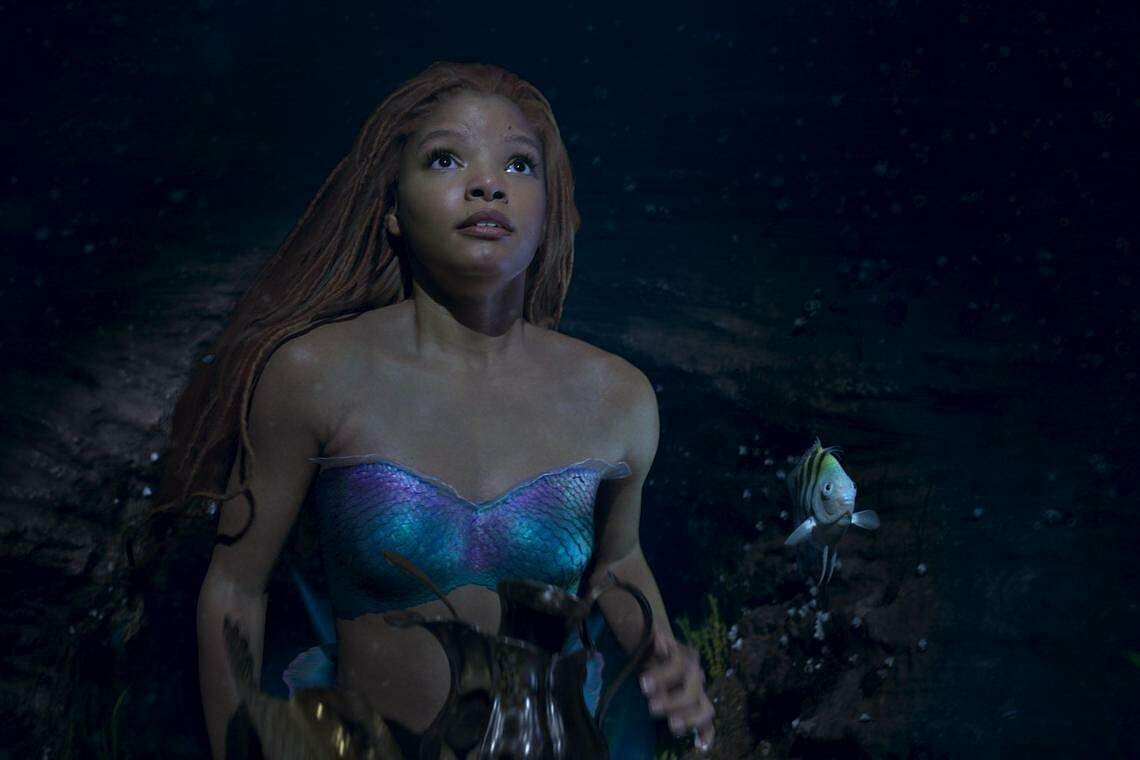
The film opens with a Hans Christian Andersen quote, taken from his story: “But a mermaid has no tears, and therefore she suffers so much more.”
Marshall says that unexpectedly sad note struck by the quote stems from his desire to go back to the source fairy tale to “ground this project in where it came from”.
“We were bringing more depth and emotion, which you can do with a live-action piece. That’s what this genre helps you do,” he says.
The Little Mermaid opens in cinemas on Thursday.
The online hate campaign that threatened to sink The Little Mermaid
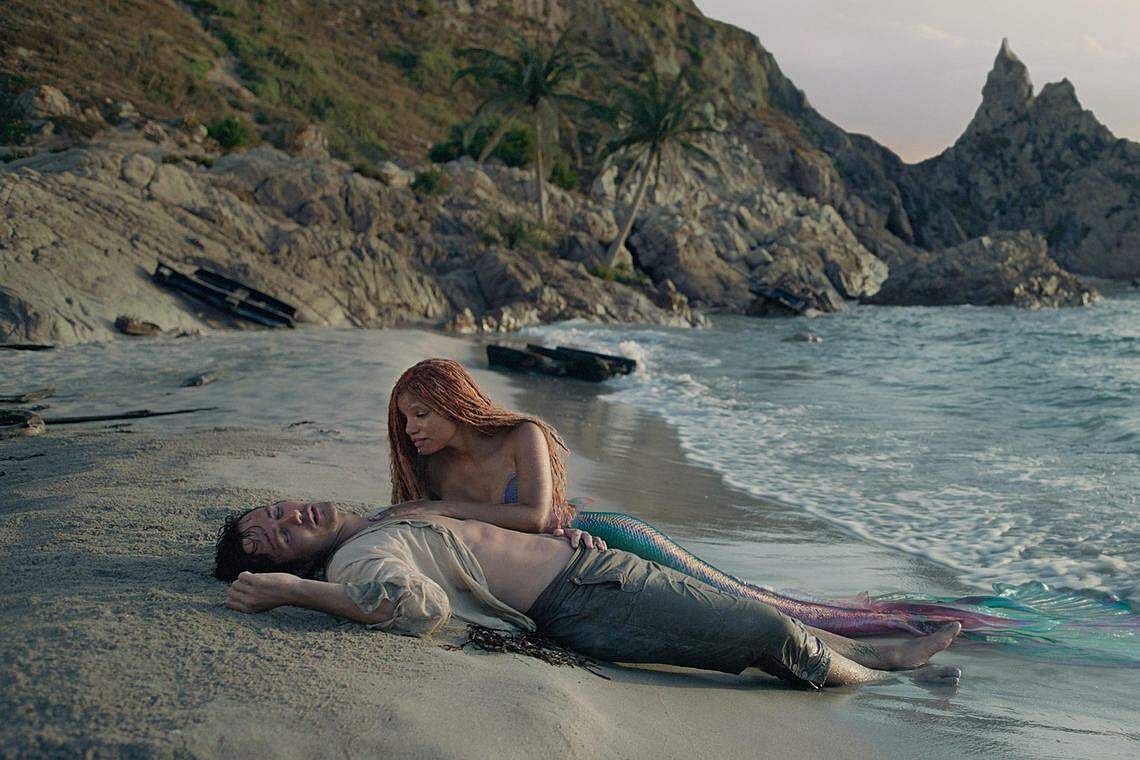
2.1 million. That is the number of dislikes that The Little Mermaid trailer has garnered since it first landed on YouTube on March 13.
That is a staggeringly high number, especially considering that the video has 327,000 likes, making the dislike-to-like ratio 6:1.
No other Disney live-action work in recent memory has attracted the same kind of hate – not even Mulan (2020), which drew flak for Chinese-American star Liu Yifei’s social media support of the Hong Kong police during the 2019 protests.
Not Aladdin (2019), which had British-Indian actress Naomi Scott playing the Middle-Eastern princess Jasmine, drawing accusations that the casting reinforced the common Western perception that Indians and Middle Eastern peoples are the same.
Of the more than 67,000 comments on The Little Mermaid trailer’s YouTube page, few are positive. The overwhelming majority are written in a snarky, dog-whistle joke format.

The unprecedented levels of outrage has its roots in anti-black racism, say experts, because no similar furore greeted, say, the casting of white actress Scarlett Johansson as Japanese woman Motoko Kusanagi in the science-fiction thriller Ghost In The Shell (2017), a live-action remake of the 1995 anime of the same title.
The Little Mermaid’s lead actress Halle Bailey has addressed the issue. In various interviews, going back to when her casting was announced in 2019, she talked about how veterans told the industry newcomer to “never read the comments”.
In an interview with The Face magazine released in February 2023, she said she heard how her casting was warmly greeted by communities who felt that the world of Disney fairy tales had previously been shut to them.
“It’s so important for us to see ourselves,” she said.
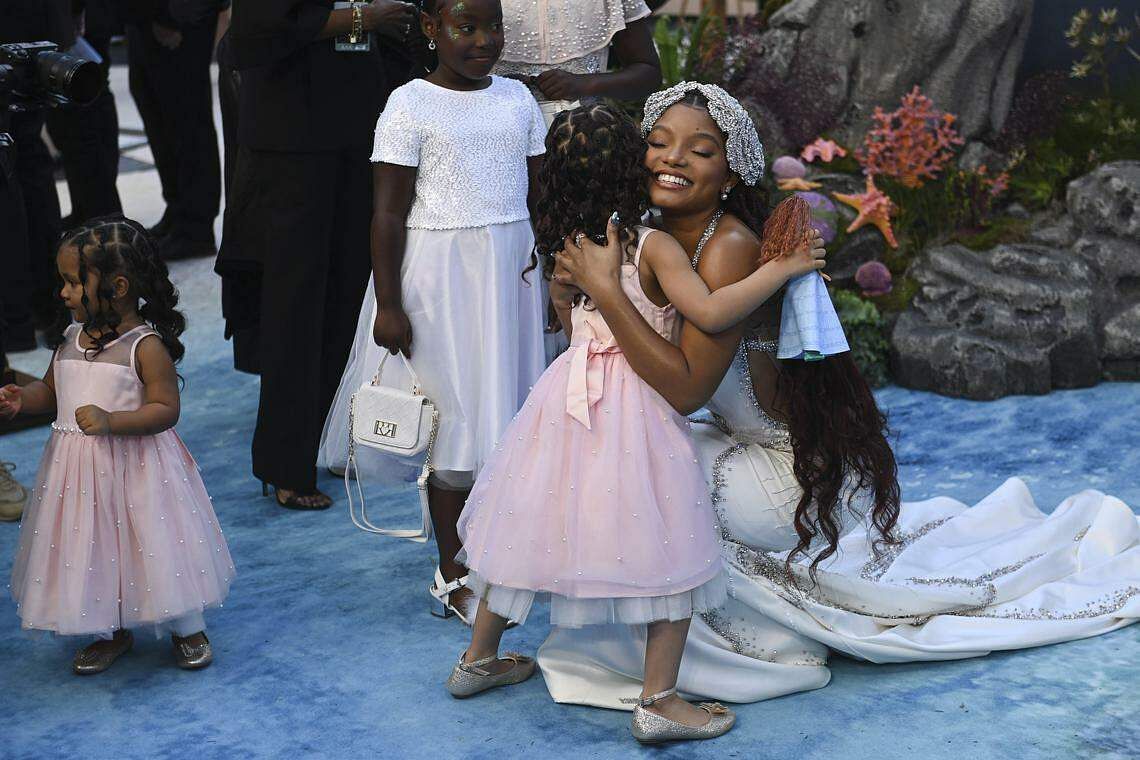
In the online press conference attended by ST, Marshall indirectly addressed the question whether he had an agenda in casting when he described the auditions for Ariel.
“The first actor we saw was Halle. She sang and I couldn’t believe what I was hearing. She’s deeply connected to what she’s singing about. We saw everybody, every ethnicity. And she claimed that role,” he says.
How 1989’s The Little Mermaid ushered in the age of the Disney Princess
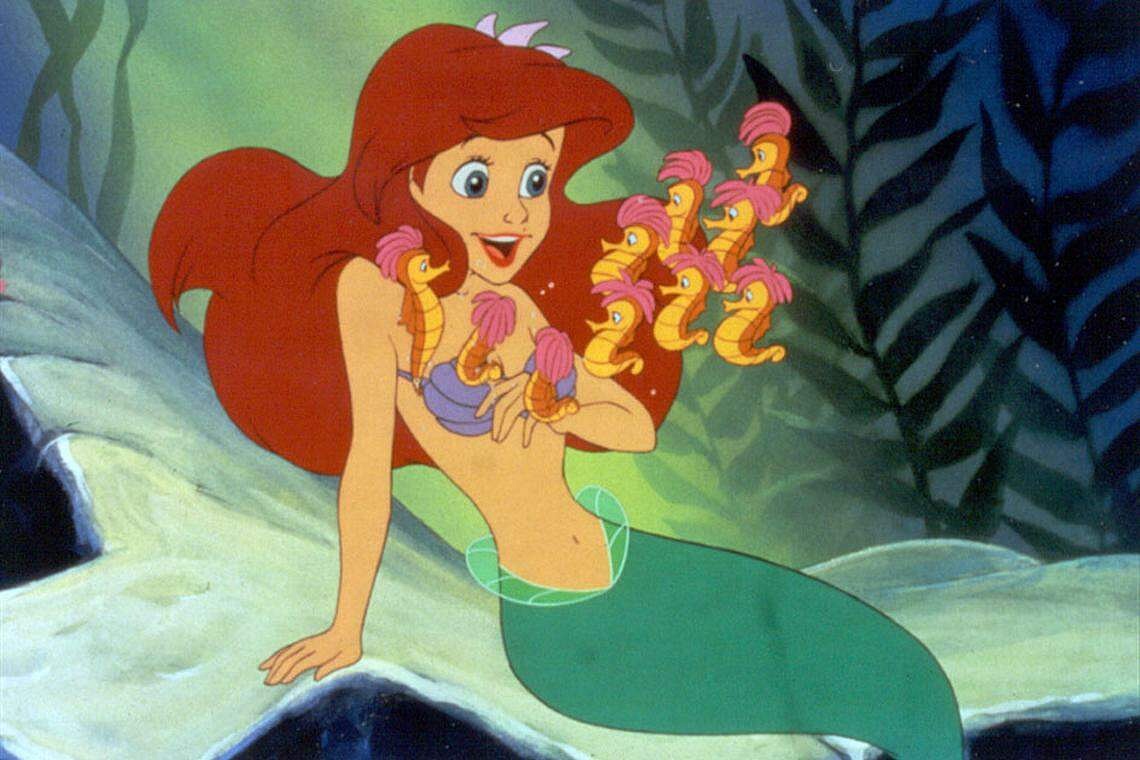
In the 1990s, children were obsessed with The Little Mermaid, driving their parents batty with repeated viewings on the family video cassette recorder. Little girls wanted to be Ariel at costume parties and karaoke meant their turn at belting Part Of Your World.
The animated movie not only helped breathe life into a flagging Disney animation feature division, but it also brought the Broadway-style musical – thought to be a dead genre – back into cinemas.
After 1989, everyone lived in a post-Ariel world.
Before Ariel, the last real Disney princess was Aurora, from 1959’s Sleeping Beauty.
Once The Little Mermaid became a worldwide phenomenon, it became easier for Disney to greenlight music-driven stories centred on headstrong girls born into regal families.
Like Ariel, a proper Disney princess has to have at least one number. One of them, in the style of Part Of Your World, is likely to be the “I want” song in which she expresses her desires, setting the story in motion.

Ariel had the crab Sebastian as a comedy sidekick, so the funny animal – or at least non-human buddy – became part of the formula.
Disney knew what to do, and after Ariel came Belle (Beauty And The Beast, 1991), Jasmine (Aladdin, 1992), Pocahontas (Pocahontas, 1995), Mulan (Mulan, 1998), Tiana (The Princess And The Frog, 2009), Rapunzel (Tangled, 2010), Merida (Brave, 2012) and Moana (Moana, 2016).
This is Disney’s official princess list, and this is where things get a little weird.
Mulan, for example, has no royal blood, yet Disney considers her a princess.
And where are Elsa and Anna from Frozen (2013), two most popular Disney characters in recent decades?
They are excluded from the official list because, at least according to Disney’s marketing and merchandising point of view, the Queens of Arendelle are so profitable that they are their own franchise. They do not need the brand boost of characters from other movies.
The formula that gave birth to Ariel also gave Elsa and Anna life, but by 2013, it had been refined to the point of creating a breakout brand.
Get The New Paper on your phone with the free TNP app. Download from the Apple App Store or Google Play Store now

